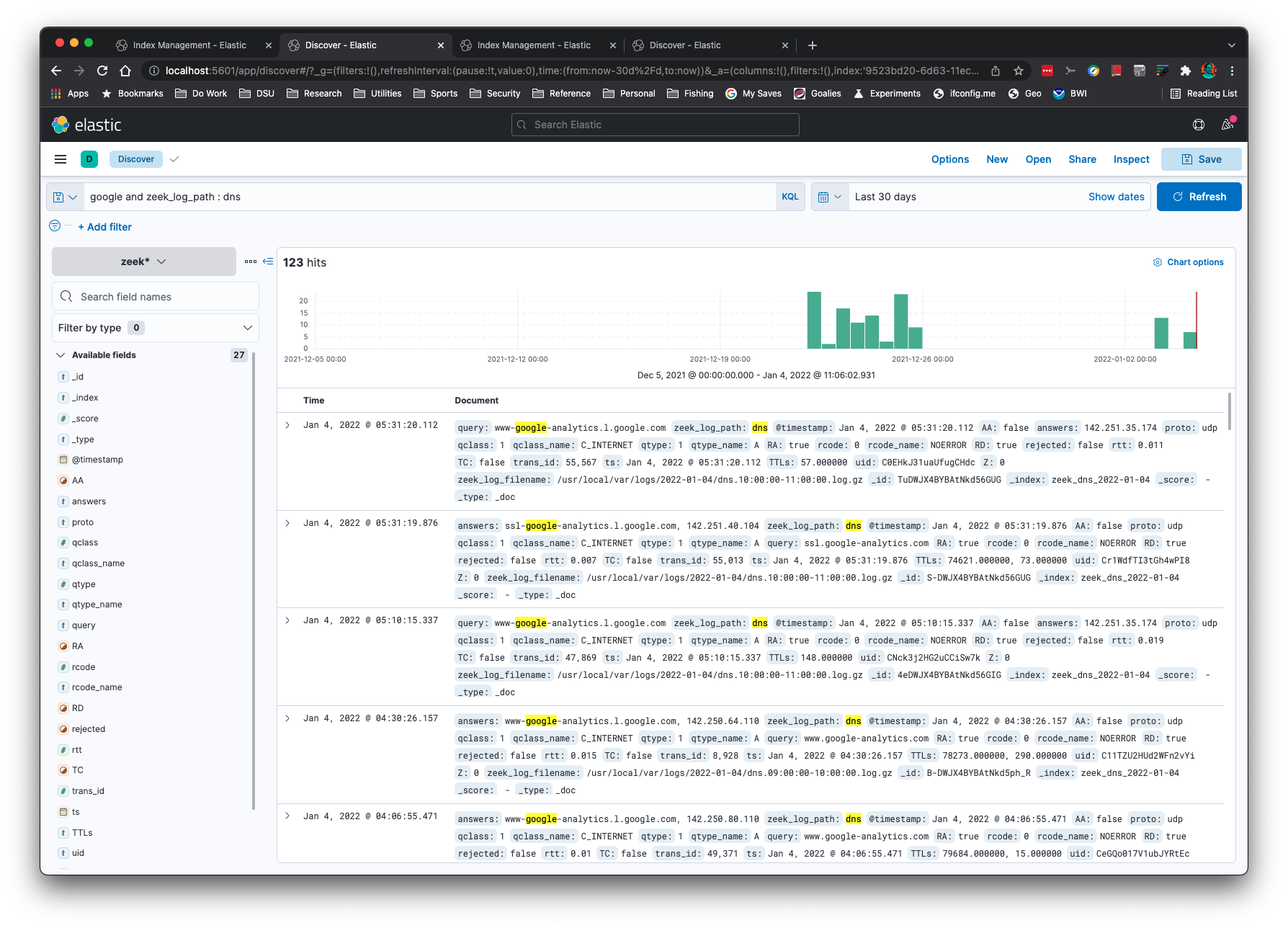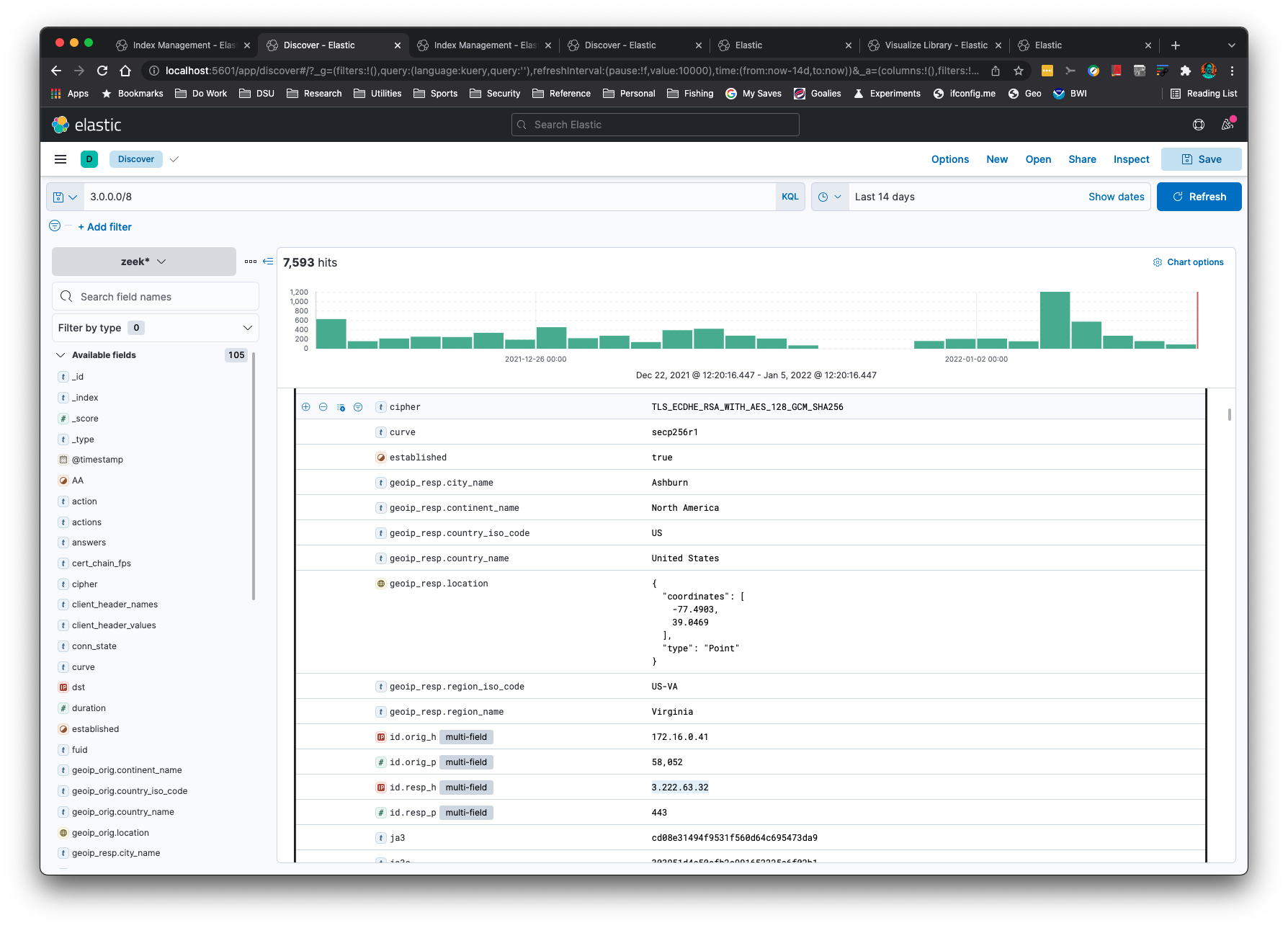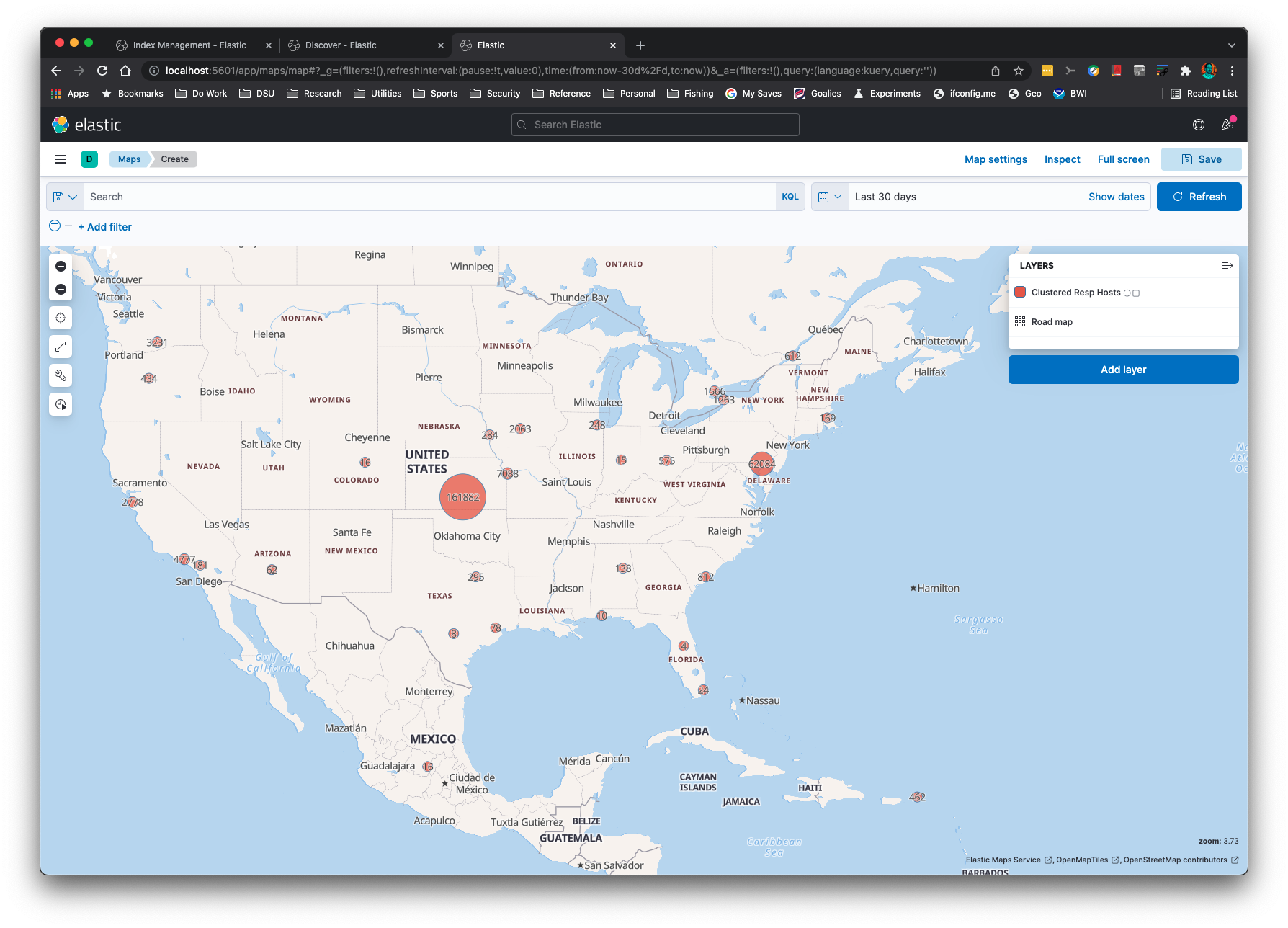zeek2es.py
This Python application translates Zeek's ASCII TSV and JSON logs into ElasticSearch's bulk load JSON format.
You can perform subnet searching on Zeek's 'addr' type:
IP Addresses can be Geolocated with the -g command line option:
This application will "just work" when Zeek log formats change. The logic reads the field names and associated types to set up the mappings correctly in ElasticSearch.
This application will recognize gzip or uncompressed logs. This application assumes
you have ElasticSearch set up on your localhost at the default port.
If you do not have ElasticSearch you can output the JSON to stdout with the -s -b command line options
to process with the jq application.
This program will output date and times in GMT time zone. You can change the input with the -m
command line option with any timezone listed by the following Python program:
import pytz
print(pytz.all_timezones)
No other Python libraries are needed to run this application.
Command Line:
python zeek2es.py your_zeek_log.gz -i your_es_index_name
This script can be run in parallel on all connection logs, 10 at a time, with the following command:
find /some/dir -name “conn*.log.gz” | parallel -j 10 python zeek2es.py {1} :::: -
If you have the jq command installed you can perform searches across all your logs for a common field like connection uid, even without ElasticSearch:
find /usr/local/var/logs -name "*.log.gz" -exec python ~/Source/zeek2es/zeek2es.py {} -s -b -z \; | jq -c '. | select(.uid=="CLbPij1vThLvQ2qDKh")'
You can use much more complex jq queries than this if you are familiar with jq.
If you want to remove all of your Zeek data from ElasticSearch, this command will do it for you:
curl -X DELETE http://localhost:9200/zeek*
Since the indices have the date appended to them, you could delete Dec 31, 2021 with the following command:
curl -X DELETE http://localhost:9200/zeek_*_2021-12-31
You could delete all conn.log entries with this command:
curl -X DELETE http://localhost:9200/zeek_conn_*
Command Line Options:
$ python zeek2es.py -h
usage: zeek2es.py [-h] [-i ESINDEX] [-u ESURL] [-l LINES] [-n NAME] [-m TIMEZONE] [-g] [-j] [-r] [-t] [-s] [-b] [-z] filename
Process Zeek ASCII logs into Elasticsearch.
positional arguments:
filename The Zeek log in *.log or *.gz format. Include the full path.
optional arguments:
-h, --help show this help message and exit
-i ESINDEX, --esindex ESINDEX
The Elasticsearch index name.
-u ESURL, --esurl ESURL
The Elasticsearch URL. (default: http://localhost:9200/)
-l LINES, --lines LINES
Lines to buffer for RESTful operations. (default: 10,000)
-n NAME, --name NAME The name of the system to add to the index for uniqueness. (default: empty string)
-m TIMEZONE, --timezone TIMEZONE
The time zone of the Zeek logs. (default: GMT)
-g, --ingestion Use the ingestion pipeline to do things like geolocate IPs and split services. Takes longer, but worth it.
-j, --jsonlogs Assume input logs are JSON.
-r, --origtime Keep the numerical time format, not milliseconds as ES needs.
-t, --timestamp Keep the time in timestamp format.
-s, --stdout Print JSON to stdout instead of sending to Elasticsearch directly.
-b, --nobulk Remove the ES bulk JSON header. Requires --stdout.
-z, --supresswarnings
Supress any type of warning. Die stoically and silently.
Requirements:
- A Unix-like environment (MacOs works!)
- Python
Notes:
JSON Log Input
Since Zeek JSON logs do not have type information like the ASCII TSV versions, only limited type information can be provided to ElasticSearch. You will notice this most for Zeek "addr" log fields that are not id$orig_h and id$resp_h, since the type information is not available to translate the field into ElasticSearch's "ip" type. Since address fields will not be of type "ip", you will not be able to use subnet searches, for example, like you could for the TSV logs. Saving Zeek logs in ASCII TSV format provides for greater long term flexibility.
ES Ingest Pipeline
If you need to delete the ES ingest pipeline used to geolocate IP addresses, you can either do it through Kibana's Stack Management->Ingest Pipelines or this command will do it for you:
curl -X DELETE "localhost:9200/_ingest/pipeline/zeekgeoip?pretty"
This command is recommended whenever updating your copy of zeek2es.py.


